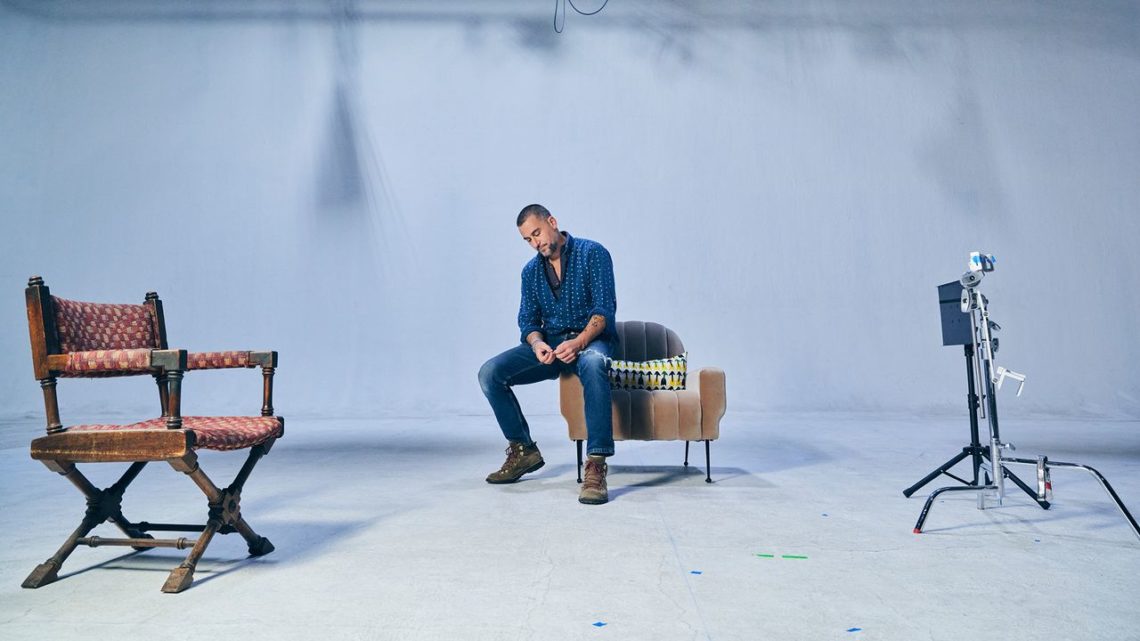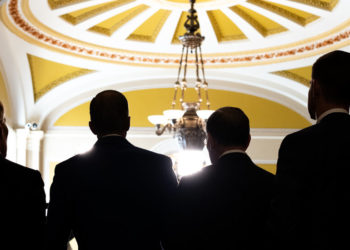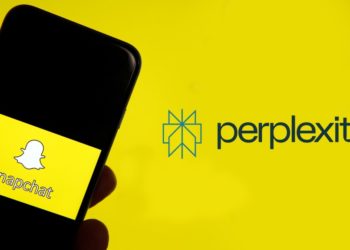The ghosts of Hollywood’s past haunt Bryn Mooser’s office building—but that’s just the way he likes it.
At one of LA’s oldest soundstages, built by legendary movie producer Mack Sennett and opened in 1916, the walls are covered with pictures of Mabel Normand, one of the greatest comedians of the silent-film era and one of the first women to have her own studio. Charlie Chaplin filmed movies in this sprawling 25,000-square-foot space; so did David Lynch and Martin Scorsese. In its later years, music videos like Michael Jackson’s “Remember the Time,” No Doubt’s “Don’t Speak,” and Robin Thicke’s “Blurred Lines” were all shot there.
Mooser, a prolific movie producer, likes to be surrounded by reminders of Hollywood’s progress—the leap to talkies, the infiltration of color, the adaptation of new storytelling devices and media. “I wanted to be in a space that was, even on a subconscious level, a reminder that our industry has gone through a lot of technological changes in the past,” he says. “All those changes kind of make sense in the long term. But when you’re in them, the conversations about them must have been really brutal.”
Though Mooser has worked here only eight months, it’s already a bustling space centered around a large room with a dozen computers, where his employees are each focused on different projects—all using generative artificial intelligence.
Asteria, Mooser’s company, calls itself an artist-led generative-AI film studio. Unlike his rivals from Silicon Valley, Mooser sells himself as a creature of Hollywood who’s trying to use AI to enhance storytelling, not replace storytellers. “Basically, AI is a dead end in Hollywood until you solve the copyright issue,” he says. So he and his team at Asteria worked with the tech start-up Moonvalley to do just that, creating a new AI model called Marey (named after French cinematography pioneer Étienne-Jules Marey) that only uses legally licensed material. In July, Marey, which is designed to be used by professional filmmakers, became available across multiple channels, including through direct subscription. Moonvalley also partnered with Adobe to integrate Marey into Firefly and Premiere Pro.
AI is the dirty word on everyone’s lips in Hollywood these days. Weeks ago, AI “actor” Tilly Norwood sent ripples of panic through the industry thanks to rumors that she might sign with a talent agency. (Spoiler: That didn’t happen.) Then Sora 2—the newest version of OpenAI’s video app, which can generate clips of characters featuring the likenesses of actual actors provided that they opt in—raised alarms for agents and talent. On social media, Robin Williams’s daughter, Zelda, begged people to stop sending her AI-generated videos of her late father. Bryan Cranston and his agents spoke out when his Breaking Bad character Walter White began popping up in videos, including one with Michael Jackson. “I was deeply concerned not just for myself, but for all performers whose work and identity can be misused in this way,” Cranston said in a statement he released along with SAG-AFTRA, OpenAI, and others. OpenAI said it had strengthened guardrails that would protect individuals’ voices and likenesses, but the fear remains palpable.
An environment like this makes Mooser’s job harder, but he’s up to the task. He likens Asteria to a teaching hospital, where he can help those who don’t know much about AI to see the possibilities behind the new technology: “Even when I’m bringing people through and they’re like, ‘Fuck AI,’ I can promise them that when they leave, they’re not going to be scared. They’re not going to be as angry.”
If anyone’s right for this job, it’s Mooser. He’s been at the forefront of every major wave that’s hit the industry in the past several years, from documentaries to virtual reality. He’s charismatic, passionate, and makes the technology feel accessible—human even. “It’s the biggest leap forward since computers—maybe bigger,” he says. “I tell people it’s optional to use AI, but it’s not optional to learn about it.”
Two years ago, Mooser spoke about AI at the Sundance Film Festival. The reception, he says, was ice cold; the crowd was lobbing figurative tomatoes at him. Everything was different this past January: The people he spoke to had become AI-curious, says Mooser. He attributes the slow thaw to the fact that more people are now using AI in their everyday lives, having ChatGPT help them book travel, for example.
He’s noticed a similar change among the people who come to his office to hear more about AI. Mooser has recently brought in members of the Producers Guild and Directors Guild, prepared to show them what the technology can do. “People were coming up to me afterward, not in tears, but emotionally moved because of the feeling of isolation and fear [about AI] that people have been feeling for so long,” he says.
Mooser is happy to show me an example of how AI can work with an artist. Bad Bunny wanted to make a music video for his song “Ketu TeCré” that would follow a frog mascot called Concho during a night on the town, he explains. It would have been a time-consuming stop-motion project for the team at Acho Studio, led by Quique Rivera, to make so many Conchos. So Bad Bunny teamed up with Asteria, which created a model based on Rivera’s work. “It’s not like now we don’t need a stop-motion artist,” Mooser says. “It’s just now he can do more.”
Asteria recently announced ChikaBOOM!, an animated short film directed by c. Craig Patterson and featuring the voices of Natasha Lyonne, Yara Shahidi, and Daveed Diggs. Mooser has other projects in the pipeline that remain top secret, including an animated film that he claims would have cost between $80 million and $100 million had it been made at a traditional studio. Asteria plans to do it in house for around $6 million, completing it in a year and a half.
When I visit Mooser’s office, I see a vision board covered in Dalí-like images. It’s inspiration for Asteria’s most high-profile project to date: Uncanny Valley. The film is Lyonne’s directorial debut, combining AI tools with traditional filmmaking techniques. Lyonne and Brit Marling cowrote the script, set in a parallel present and following a teen girl whose world grows increasingly dangerous when a popular AR video game starts glitching.
When the project was announced, Lyonne—who is a cofounder of Asteria and was, for a time, dating Mooser—got flack on social media for embracing AI. But the Asteria model Marey is meant to be an artist’s friend, according to her and Mooser, and Lyonne made it clear that the film would still be traditionally shot like any other movie. “We’re getting to really find these sort of rules of play and start to understand that there might be a way to actually have some artist protection and carve-out within all this that keeps us doing the thing that we love,” she said.
The heat against AI isn’t just coming from social media. The biggest question remains if the most influential artists in Hollywood will ever embrace this new technology. “AI, particularly generative AI—I am not interested, nor will I ever be interested,” Guillermo del Toro recently said in an interview. “The other day, somebody wrote me an email, said, ‘What is your stance on AI?’ And my answer was very short. I said, ‘I’d rather die.’” Many of the filmmakers and other creators I’ve spoken to echo that sentiment, and it’s not clear if even an approach like Mooser’s—tailored specifically to Hollywood fears—will be able to break through that wall.
It’s true, too, that the AI revolution is coming at a time when the infrastructure of the movie industry has been cracking and crumbling. Studios are merging, opportunity is dwindling, jobs are scarce, and theatergoing is dropping. Some see the adoption of AI as crossing a dangerous Rubicon; others, like Mooser, think it’s a logical next step. “The reason that it’s all-consuming to me is that the technology is here against a backdrop of a broken system and a system that is not meant to let everybody in the door,” he says. “And when you put those two together, that’s like a revolution.”
Mooser has always been looking to change the world. After college, he joined the Peace Corps and spent two and a half years working on agricultural projects and helping to build schools in West Africa. He later moved to Haiti after the devastating earthquake in 2010; there, he began building the idea of a media company that could share stories from around the world with the help of virtual and augmented reality. He cofounded that company, RYOT, in 2012, just as the technology was hitting the mainstream. It was then acquired by Verizon’s AOL for The Huffington Post, and he worked at the telecommunications and media giant until 2018.
At the end of the 2010s, streaming companies like Netflix were hungry to scoop up projects for their new services. Mooser founded documentary studio XTR in 2019, just as the boom began. XTR has made more than 80 documentaries, released variously by Neon, Hulu, Netflix, and HBO; its films Body Team 12 and Lifeboat earned documentary-short Oscar nominations.
You could say Mooser has a knack for knowing what technology is about to shake up Hollywood. “I think that he is a very curious person,” says Angel Manuel Soto, the Puerto Rican filmmaker behind Blue Beetle who has known Mooser for about 10 years. “I do think that he leads with curiosity, and as a filmmaker himself and someone who has traveled, there’s a lot of humanity in terms of [his] approach to things.”
Mooser knows a lot about the intersection of tech and filmmaking. He references how Walt Disney Studios bought audio oscillators from Hewlett-Packard in the late 1930s, which led to the innovative sound systems used in Fantasia, and how George Lucas started the cutting-edge visual-effects company Industrial Light & Magic. “There are these moments where technologists and creatives come together to solve a collective challenge,” he says. “I’m always interested in these moments, these epochs that can change the power dynamics of an old system.”
After founding XTR, Mooser opened up a studio in Echo Park and had a bold idea: He bought some cameras, set up a studio space, and told his friends to come by anytime to make whatever they wanted. He was devastated when nobody showed up. “What happened to this thing of us being all filmmakers by any means necessary?” he remembers thinking. “That energy is fucking gone, and it’s been heartbreaking.”
Maybe making movies outside of the Hollywood system felt too hard, too expensive, too unattainable. Now, Mooser thinks AI might democratize the system, bringing down costs, especially in the animation space. Asteria’s been setting up partnerships with promising filmmakers around the world to explore this possibility. “It’s this kind of punk rock spirit of AI—you can break the rules,” he says. “You don’t need the old system. You can just go out and go make a movie.”
Avatar filmmaker James Cameron made a similar argument for using AI in visual effects in April, saying that “we’ve got to figure out how to cut the cost of that in half. Now that’s not about laying off half the staff and at the effects company. That’s about doubling their speed to completion on a given shot, so your cadence is faster and your through-put cycle is faster, and artists get to move on and do other cool things and then other cool things.”
Mooser envisions a world where a studio can use a tailor-made model for each movie. “If you can fine-tune and train your models around specific film or television projects you’re working on, then those models are only generating and only thinking in the universe of that piece of IP,” he says.
But even if Hollywood gets on board with generative AI like Mooser hopes they will, it’ll have to grapple with serious questions. How, for example, should the industry handle the environmental toll of AI—a massive energy drain that’s significantly contributing to greenhouse gas emissions? Mooser admits he doesn’t have all the answers. “If you’re an optimist about it, it’s like, this is humanity’s greatest gamble,” he says. “There’s a lot of hope in what this thing can do, and we’re starting to see some of those things come up. But I think that the energy piece is critical to solving that.”
The post Bryn Mooser Insists He Has the Answers to Hollywood’s AI Woes. Will Anyone Believe Him? appeared first on Vanity Fair.




